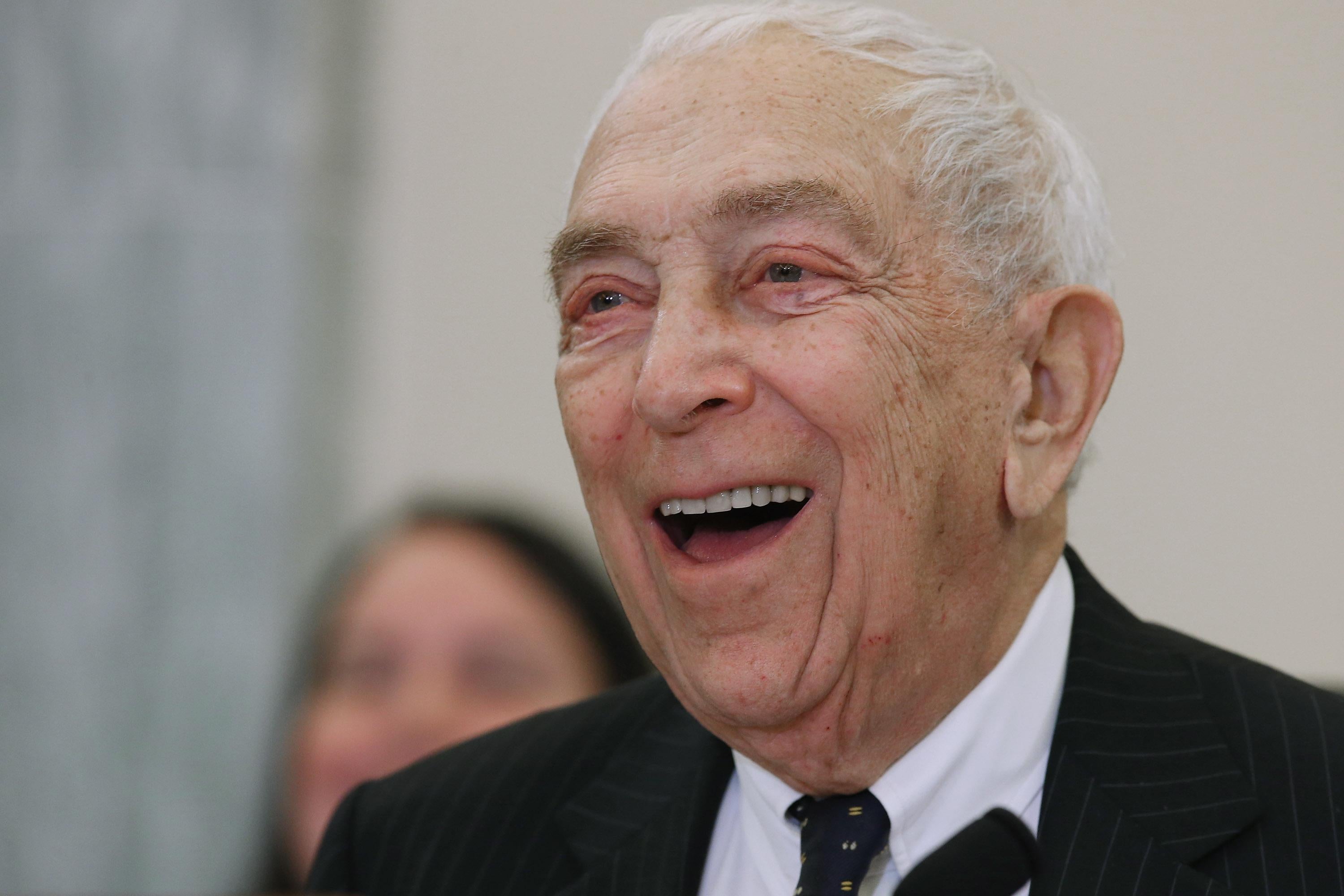Jake Sherman and John Bresnahan are the only people I’ve seen reporting a crucial weakness for Democrats on this week’s gun vote. “Sen. Frank Lautenberg (D-N.J.),” they report, “who has serious health problems, is expected to remain at home this week.”
Ah, it feels like only yesterday when we were reading about Lautenberg’s brass-knuckled defense against Cory Booker. According to the New York Times, Lautenberg had “embraced his job with new vigor.” This is true in the sense that he was among the first to propose dramatic gun control after Newtown; it was complicated by the fact that Lautenberg was 89, walked with a cane, and would soon develop health problems that had local reporters speculating about how Chris Christie might replace him. (If he leaves before Aug. 27, there’d be a November special election; if he left on Aug. 28, the election wouldn’t be until November 2014.)*
It didn’t need to be this way. In the waning days of the filibuster reform battle, Sen. Harry Reid proposed a compromise to keep the 41-vote cloture threshold, but flip the onus of that vote onto the filibuster-ers. Instead of supporters needing to round up 60 votes to move forward on a bill, the people opposed to the bill would need to marshall 41 votes against it.
But Democrats didn’t get that. Instead, they get to repeat the joys of 2009, when there were occasionally 60 theoretical votes to move on bills, but the ailing Sens. Ted Kennedy and Robert Byrd couldn’t make it to the floor.
Correction, April 15, 2013: This post originally said the election to fill Sen. Frank Lautenberg’s seat would take place November 2010.
